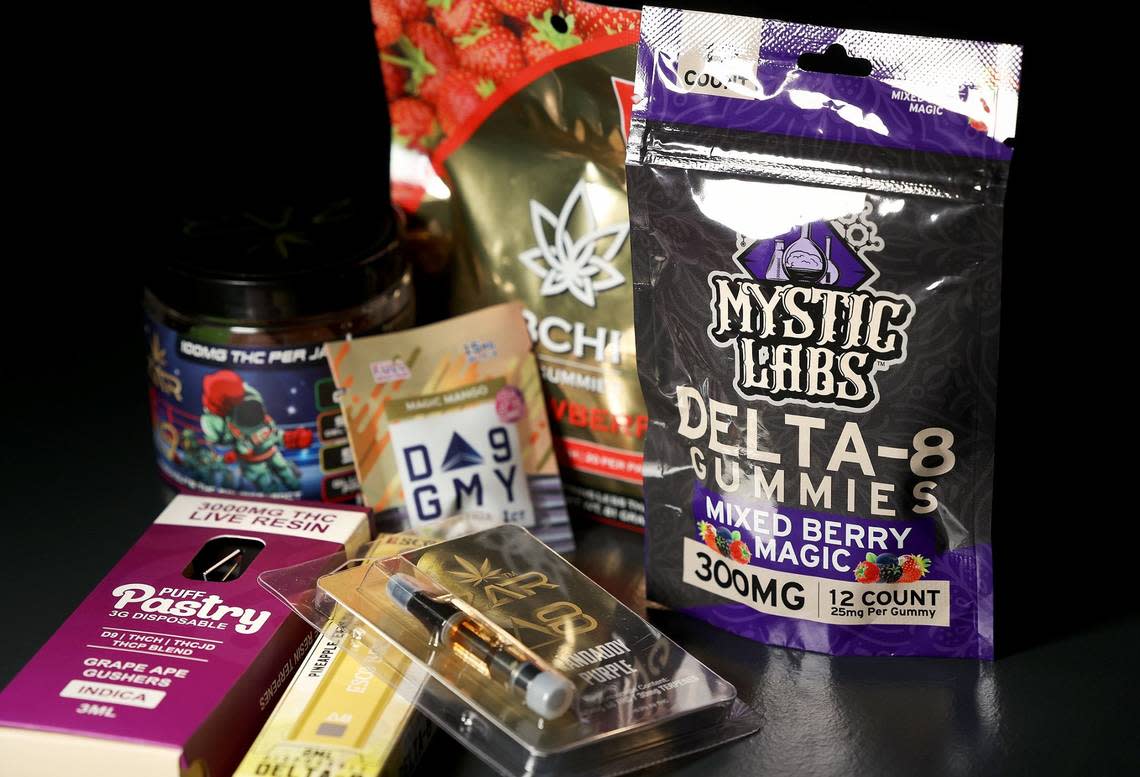A doctor’s plea: Regulate intoxicating hemp to safeguard Florida kids | Opinion

The last five years have been a challenging time for young people. According to a recent study of high school students by the Centers for Disease Control and Prevention, nearly half (42 percent) of students felt “persistently sad or hopeless,” and more than one in five students (22 percent) seriously considered attempting suicide.
These students have experienced a lot: the challenges of a global pandemic, disruptions to their schooling, and the increased isolation brought on by an ever-more digital world.
Many teens have turned to drug use: In 2022, nearly a third of high school seniors and a fifth of high school sophomores reported using an illicit substance. These numbers don’t count accidental ingestion of an illicit substance, which is a real and growing problem among young children.
As a medical professional who focuses on child and adolescent health, I am both concerned by this crisis and encouraged by the steps the Florida Legislature is taking to prevent further harm to students by regulating the intoxicating hemp industry.
As a result of federal legislation in 2018, hemp seeds are no longer included on the Drug Enforcement Administration’s schedule of controlled substances.
In the intervening six years, a new industry of intoxicating hemp products containing synthetically derived THC has developed. Products containing compounds like delta-8 THC, which is derived from hemp, are intended to mimic the effects of marijuana.
However, unlike traditional marijuana, these products are largely unregulated. Harmful chemicals could be used or created in the production of these products. Many delta-8 products are made to look like candy, and current Florida law allows them to be sold anywhere – from gas stations to local convenience stores.
Existing laws in Florida put children and adolescents at risk from intoxicating hemp in two ways:
First, through accidental ingestion by young children, and secondly, through intentional consumption by adolescents. Both risks are a real and growing problem.
Children have been hospitalized after accidentally consuming their parents’ delta-8 THC candy, and national poison control centers recording over 2,000 cases in their first year of monitoring for the chemical. Also troubling is the rise of intentional unregulated consumption by teenagers.
A recent study shows that more than one in ten 12th-grade students—or two students in an average 12th-grade class—now use unregulated delta-8 products. These teens are ingesting these products with no oversight and minimal product testing or concentration standards.
Earlier this year, the Florida state legislature took action to protect our children and young adults by passing Senate Bill 1698. The legislation would create reasonable guardrails for the intoxicating hemp industry in our state.
Under the new law, intoxicating hemp products would be held to the same health and safety standards as other food products. It expands laboratory testing and packaging requirements for hemp extract and cracks down on loopholes that let companies produce intoxicating products that are attractive to children.
Now awaiting Gov. Ron DeSantis’ signature, the legislation will protect children in the state once it is signed.
While there can be debate about the potential medical benefits of marijuana for adults, that is not the topic under discussion here. Florida has a robust medical marijuana program with over 600 licensed dispensaries in the state. These dispensaries are highly regulated, as are the products they sell.
Products must be sold at a licensed dispensary in a tamper-proof container – eliminating the unregulated gas station gummies putting kids at risk.
The common-sense guidelines included in SB 1698 will help create safer communities for Florida’s youth. Children and adolescents today face significant challenges when it comes to their mental and physical health.
Signing this legislation will protect our youth from one of those challenges, by reducing access to and increasing regulation over potentially dangerous substances.
As a doctor, I urge the Governor to sign the legislation and protect our kids.
Thresia B. Gambonis is president of the Florida Chapter of American Academy of Pediatrics.

